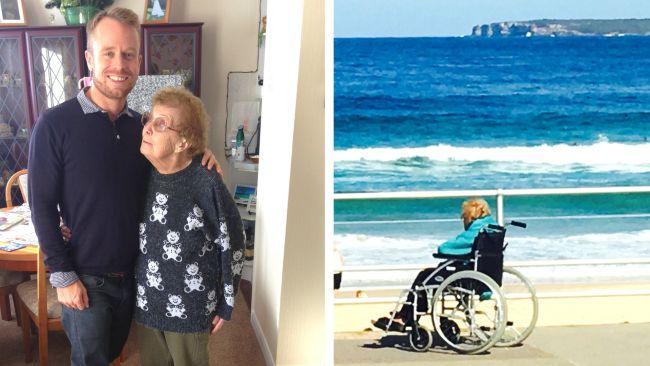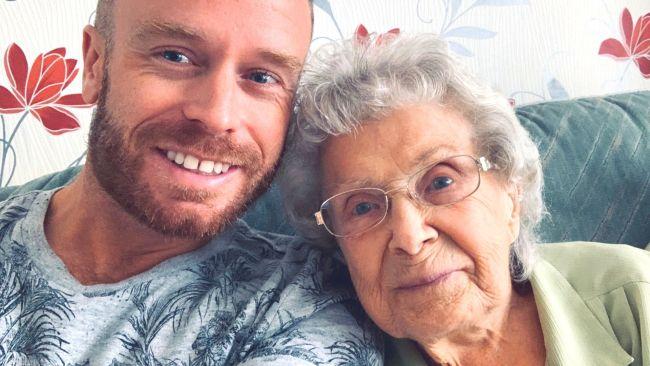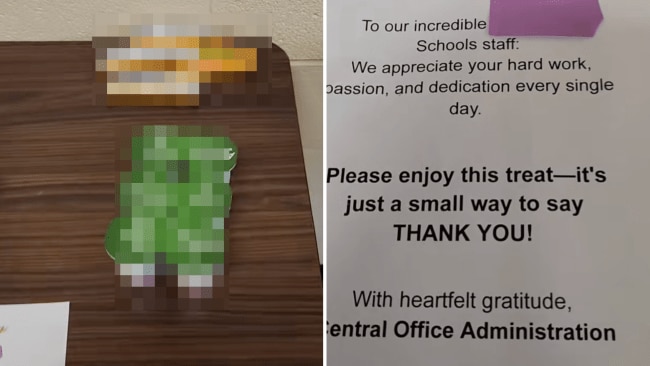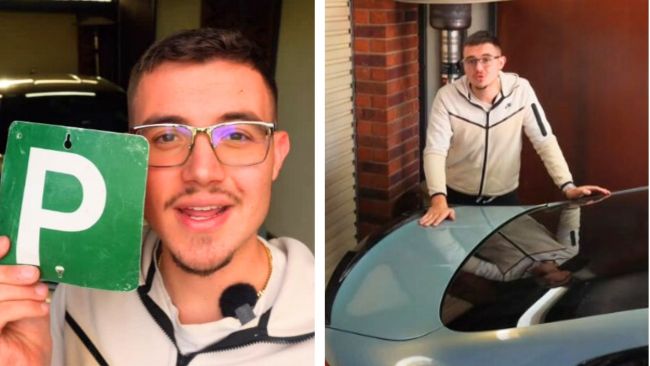I became my nan's surrogate son after she lost three of her own four boys
"Losing one son is heartbreaking. Losing all but one of your four sons is beyond cruel."

Parenting
Don't miss out on the headlines from Parenting. Followed categories will be added to My News.
I’d always been very close to my nan, and always felt extremely protective of her. As she aged and faced unthinkable tragedy, I stood beside her, vicariously heartbroken.
The good times that’d come before, though, sustained us.
Want to join the family? Sign up to our Kidspot newsletter for more stories like this.

RELATED: How three generations of pregnancies can be connected
The closeness of gay grandsons and their nans
I think there’s a certain unique closeness some gay grandsons like me have with their nans.
Part of it is because of the innate campness of older ladies with their shopping trolleys, doilies and fondness of ornaments which they think are elegant but are actually screamingly kitsch. But it goes deeper than that.
There’s a certain softness of touch between us. We see each other’s vulnerability when pitted against the rest of society, but also the required toughness each has had to acquire to survive. I see it again and again with my gay friends and their nans, especially when they die, and they reflect upon the relationship.
Nan outlived her husband, my granddad, as many women in her generation did by 20, even 30 years. Buses are full of grey haired widows; few men.
She was grief-stricken when he died, of course, but afterwards it was like she had this new lease of life. Granddad hadn’t liked flying; suddenly Nan was jetting to America every year to see her sister-in-law.

RELATED: Man expresses appreciation for ‘superhero’ MIL
Nan lost three of four beloved sons
I’ll always remember the first time Nan lost one of her four beloved sons.
I was heartbroken for her; how unfair, how devastating, to outlive one of your own children.
That role reversal happens quicker with your grandparents - it was the first time I was truly taking care of her rather than her of me. It was around that time I began taking her to see a London West End musical every year, to take her mind off things. It became a tradition we kept for almost 20 years.
The second of Nan’s sons to die had us all in shock - and super concerned. This was Nan’s youngest son, her baby. I asked to be put on the phone to her but when she took the receiver, she was mute in shock. There was just this quiet sobbing. All I could think of to say was “I’ll see you soon, I’ll see you really soon.” The words feel so empty now. What do you say to a mum who’s lost two of her children?
The third son to die was my own dad. By this point, Nan had outlived three of her four sons. And we were in intense grief together.
It's a unique experience, watching an elderly frail woman mourn multiple children. Losing one son is heartbreaking. Losing all but one of your four sons is beyond cruel.
Never will I forget the sound that emanated from this tiny, sweet, softly-spoken woman as my dad lay in the hearse moving slowly to the cemetery, a sound I’d never before heard her make; a deep, loud, guttural, ugly wailing, as unnatural as the act of burying your own child, one only a mother could make at her son’s death, something far deeper than my own emotional understanding.
I just held her tight so she muffled that sound into me, hoping to take some of the sadness from her and absorb it instead into me.
Finding meaning
In 2019, David Kessler, credited as co-coining the 5 stages of grief (denial, bargaining, anger, depression, acceptance) added a poignant sixth stage, following the sudden death of his own 21-year-old son: finding meaning.
Nan was 83 when she, against the advice of those who said she was too frail, packed up her wheelchair and flew solo from the UK to Australia for the first time to stay with me in Sydney for three weeks.
I couldn't replace the sons she'd lost. But on that trip, our uniquely close bond was taken to a new level. As we grieved together, I became closer than her grandson. I became a surrogate son to her. She shared things with me she said she hadn’t told anyone.
Born from unimaginable grief, by cuddling koalas and admiring mountain ranges and hosting a Eurovision party for all my friends and sailing under the Harbour Bridge, we did what Kessler encourages. We found meaning, in this new reframing of our own relationship.
Just before she died, Nan - battered by grief, in ill health, with extortionate travel insurance and now almost completely wheelchair bound - was defiantly planning her second trip to visit me in Australia.
This time, there were more voices of dissent. “You can’t go all that way again, you’ll die on that long flight!” they’d say.
“Maybe,” Nan said. “But at least I’ll have died living my life.”
Gary Nunn is a freelance journalist. Twitter: @garynunn1
More Coverage
Originally published as I became my nan's surrogate son after she lost three of her own four boys




